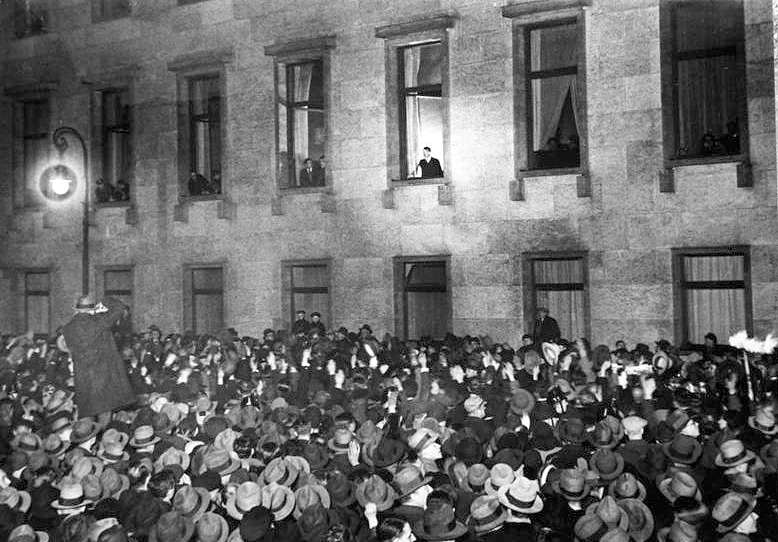
Leadership matters. Adolf Hitler’s accession to the chancellorship of Germany on Monday, 30 January 1933 is a stark, tragic reminder why.
He assumed office following partisan parliamentary maneuvering intended to clarify governance in the aftermath of inconclusive electoral results.
His rise to power was made possible by an improbable confluence of contingencies.
One thing is clear: spectacular failures of leadership, symbolized by the ill-fated Weimar Republic, threw the doors open for the Nazi regime.
Hitler promised a reset, built on the foundation of his twisted “leadership principle.”

Now and again one hears the cynical—or, perhaps more charitably, exhausted—refrain: leadership doesn’t matter.
One need not look far to find such a viewpoint expressed in and around all the major institutions of American life today. It can be a rationalization for inaction, for turning one’s head and heart the other way.
The historic events of 30 January 1933 stand in somber, enduring, unassailable rebuke.
Leadership is far, far too important to leave to chance.
The mantle of leadership, by whatever name, should not be abandoned to self-serving interests that thrive in an ailing ecosystem that many people of good will find difficult to contemplate or acknowledge, much less enter as participants.
30 January 1933 | Why Leadership Matters
